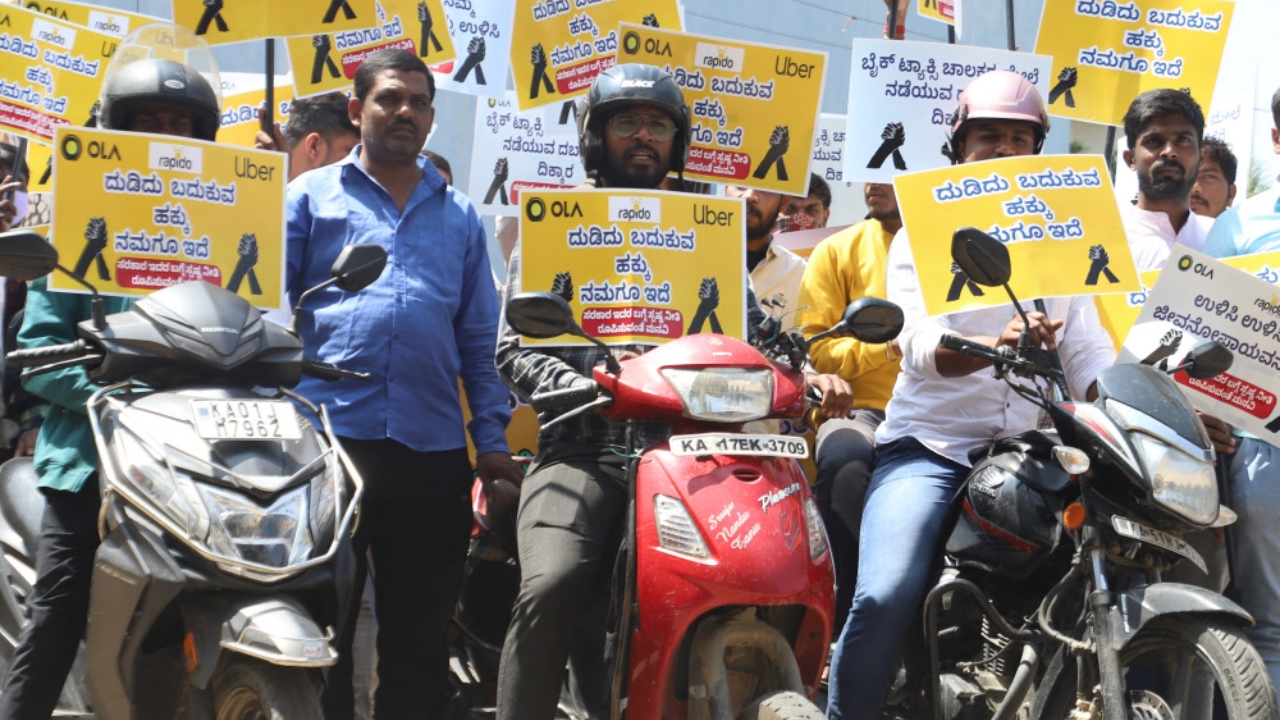The scheme also paves the way for bike taxis and mandates that the aggregators should on board electric two-wheelers for passenger services.
The file pertaining to the Delhi Motor Vehicle Aggregator and Delivery Service Provider Scheme 2023 has been submitted to the lieutenant governor’s office, according to an official statement.
Triumph Scrambler 400 X Review: Buy this over the Speed 400? | TOI Auto
According to the letter written by the drivers, “The scheme essentially states that only electric bike taxis would be allowed to run in Delhi and bike taxis of other fuel types would become illegal to operate. By notifying the said scheme, the government would stop our only source of income that not only supports me but my entire family.”
The letter has also been sent to Kejriwal, BJP MP Gautam Gambhir and Transport Minister Kailash Gahlot.
“This would be a very unfortunate decision as there may be a situation of mass unemployment in a scenario where inflation is already so high and surviving in a metro city has become difficult. For most of us, driving bike taxis is our only source of income to maintain a decent livelihood in these trying times. Even drivers who are dependent on both food delivery and bike taxis are bound to lose half of their income since food delivery is able to employ us only during meal hours,” it added.
While appreciating the Delhi government’s intent to transition to electric vehicles and reduce pollution levels across the city, the drivers underlined that harsh measures like allowing only electric bike taxis to operate will take away their livelihood.
“…we request that the policy remains the same for all bikes, if a bike is allowed on the road to undertake commercial work like delivering goods, food, groceries etc, then it should also be allowed as a bike taxi as well. If the argument is to convert to EVs, we request that we be given the same parity and timeline to convert to EVs as has been afforded to the delivery sector,” they said.
Noting that the EV ecosystem is yet to mature for passenger services, especially for bikes, they said there are not many options available in the market that can support bike taxi operations due to limitations in battery backup and charging speed and infrastructure.
For delivery service providers, the scheme has set the target for introduction of EVs in new fleet of two-wheelers and three-wheelers at 10 per cent in six months of the implementation of the scheme, 50 per cent in two years and 100 per cent in four years.
Aggregators of four-wheelers have to achieve the target of 5 per cent EVs in new fleet in six months, 50 per cent in three years and 100 per cent in five years.
The entire fleet of all delivery service providers, old and new, has to transition to EVs by April 1, 2030.
The drivers also cited the high cost of EVs than that of a normal bike.
They said their friends in the delivery sector have been given enough time to convert their vehicles to electric, but they have not been afforded the same rights.
“If all bike taxi drivers shift to delivery platforms, since they have been afforded time to transition to electric, the incomes would get all the more depressed owing to the fact that there would be an oversupply of drivers and pollution levels in the city would remain as is,” they added.
The letter also stressed that bike taxi drivers solve a very crucial problem of last-mile connectivity to major transport hubs. “Furthermore, we also bring to your attention that our customers are generally from low income groups or students who prefer an affordable option,” they said.

